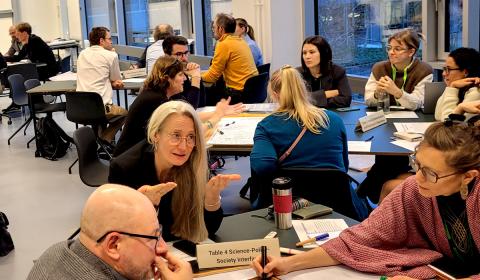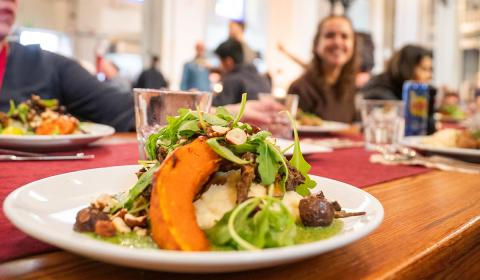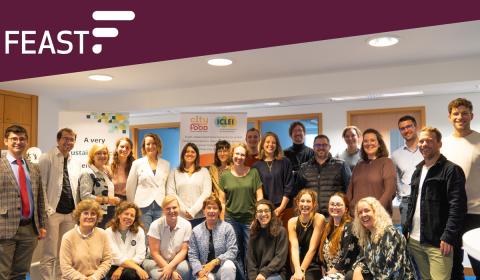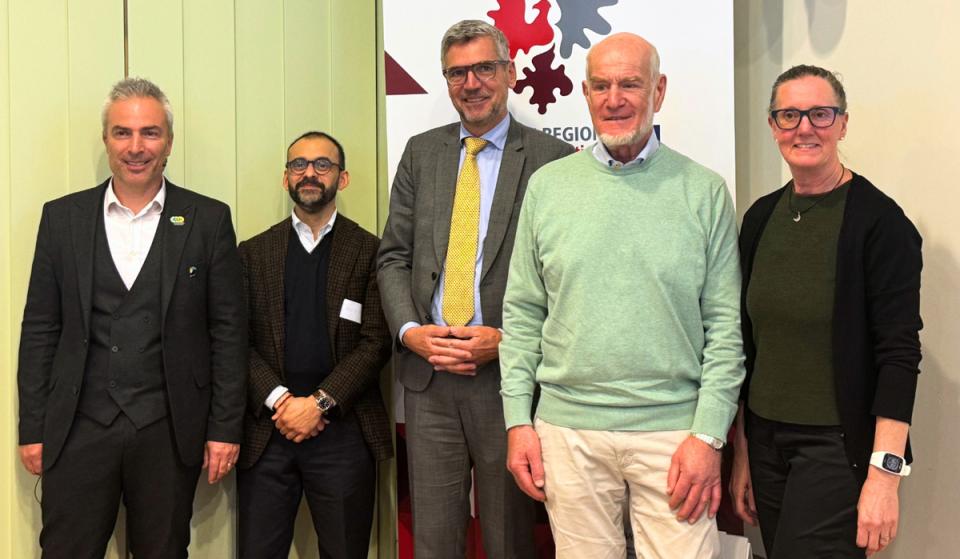
Image source: ICLEI Europe
On May 22, the FEAST project participated in ICLEI Europe's Breakfast at Sustainability's event titled "Bridging the Gap: Urban-Rural Linkages, Resilience, and Food Security in Europe." The gathering brought together leading practitioners and experts to explore systemic challenges in food systems while spotlighting successful community-led solutions.
Challenging Power Imbalances in Food Systems
Dr. Anant Jani, FEAST project coordinator, addressed the pressing issue of power imbalances in European food systems. He highlighted the “expropriation of food,” where profit-driven corporate agendas undermine people’s fundamental right to nutritious, affordable food.
"In the food system, we face a massive power imbalance," Jani said, referencing Oxford as a stark example—where within just two kilometers, life expectancy can differ by up to nine years due to disparities in food access and affordability. He pointed to ultra-processed foods, aggressive marketing, and corporate lobbying as key drivers of food insecurity. Jani urged a shift toward food citizenship: , as citizens it’s our right to claim the power”.
Community-Driven Change in Cork
Marian O’Reilly, from Cork’s Food Policy Council, shared how Cork has transformed its food landscape over the last decade. What began as a movement to salvage surplus "ugly" vegetables has grown into a robust citywide network of 30+ community gardens and inclusive food policy development.
“It’s about keeping things on the agenda and keeping things moving” O’Reilly explained. Vulnerable neighborhoods like North Cork helped shape food policies by voicing real barriers—like lack of transport and food literacy. “(This experience) took away talks about personal responsibility and highlighted challenges people face” she said.
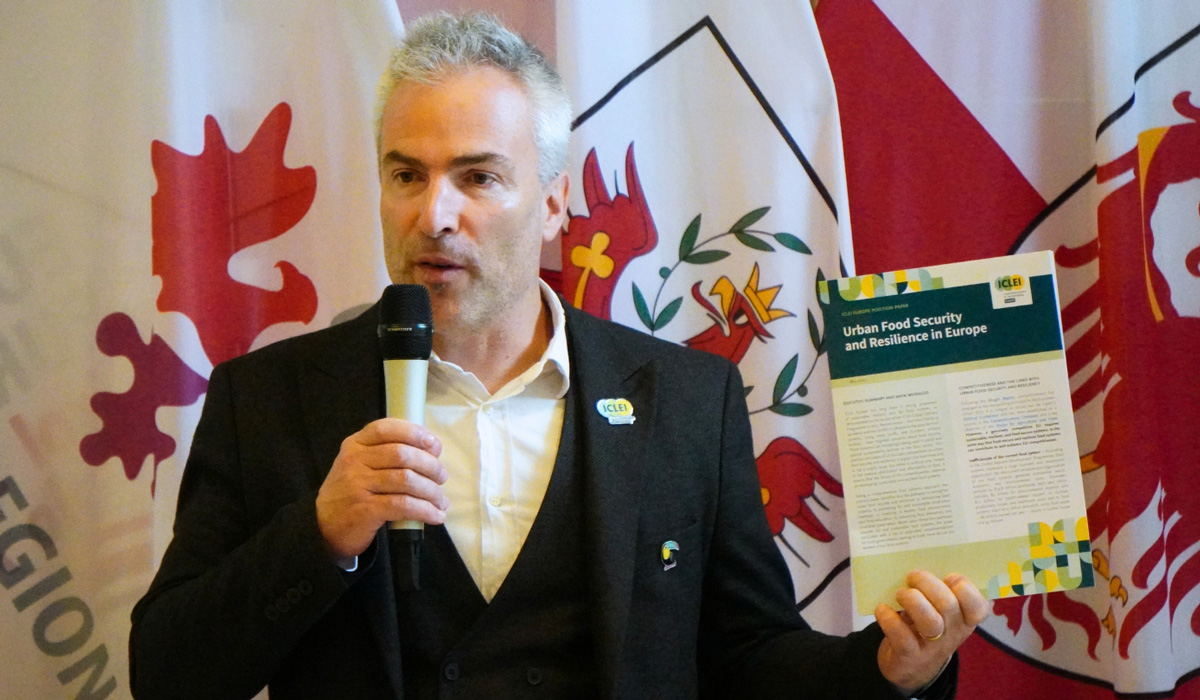
Policy Innovation: Launch of ICLEI Europe's Position Paper
A major milestone of the event was the launch of ICLEI Europe's Position Paper on Urban Food Security and Resilience. The report calls for a paradigm shift—from focusing solely on food production to prioritizing equitable food distribution and local governance.
Jean-Marc Louvin, lead author, presented 11 actionable recommendations for cities, including:
- Strengthening food democracy through inclusive governance
- Expanding urban agriculture and local food production
- Supporting short food supply chains between rural and urban areas
This landmark publication equips local governments with the tools and frameworks to tackle food insecurity and build resilient, inclusive food systems in the face of climate and economic pressures.
Conclusion: The Future of Food is Local and Equitable
The event reinforced that transforming food systems means confronting entrenched power dynamics and putting communities at the center of change. With inspiring examples from Cork and a clear roadmap from ICLEI Europe, it's evident that cities play a critical role in reclaiming food as a public good—not a commodity.
